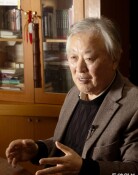Elderly wealth and independence surge as new senior values
Elderly wealth and independence surge as new senior values
Posted October. 17, 2024 07:38,
Updated October. 17, 2024 07:38

Over the past three years, the average income and assets of elderly households in South Korea have risen sharply, with a growing number of seniors opting to spend their wealth on themselves and their spouses rather than passing it on to their children. This trend is particularly evident among the so-called “new seniors,” a group largely made up of the Baby Boom generation (born between 1955 and 1963), who are entering retirement with substantial assets, higher levels of education, and shifting values.
According to the 2023 Elderly Status Report released by the Ministry of Health and Welfare on Wednesday, the average annual income of elderly households reached 34.69 million won, an increase of 4.42 million won (14.6%) compared to three years ago. During the same period, financial assets surged by 52.9%, rising from 32.13 million won to 49.12 million won, while real estate assets grew by 21.5%, increasing from 261.83 million won to 318.17 million won. “Since 2008, when we began tracking this data, elderly income and property have continuously risen, but the increases in financial and property assets over the past three years have been particularly notable,” a ministry official commented.
The report also highlighted improvements in economic independence among seniors. The reliance on private financial transfers, such as money from children, plummeted from 30.4% to 8%, while the proportion of income derived from labor and business activities rose from 39% to 53.8%. The number of single-person elderly households climbed to 32.8%, an increase of 13 percentage points, while the proportion of households living with children dropped to 10.3%, a decline of 9.8 percentage points.
The emergence of the “new senior” demographic is driving changes in attitudes towards wealth and inheritance. The percentage of seniors planning to spend their assets on themselves and their spouses increased to 24.2%, up from 17.4% in 2020. Conversely, those who intended to leave a larger portion of their estate to their eldest son dropped from 13.3% to 6.5%. The Director of the Senior Policy Bureau at the Ministry of Health and Welfare noted that “the Baby Boom generation tends to prioritize using their assets for their own benefit rather than bequeathing them to their children, preferring not to place a financial burden on their children for their support.”
Sung-Min Park min@donga.com
Headline News
- Elderly wealth and independence surge as new senior values
- Bae Jun-ho hopes to introduce more young blood into the team
- N. Korea blows up roads near border with S. Korea as tensions grow
- Samsung Galaxy S24 Ultra tops Consumer Reports’ best smartphone list
- Twin pandas Ruibao and Huibao meet the public for the first time







